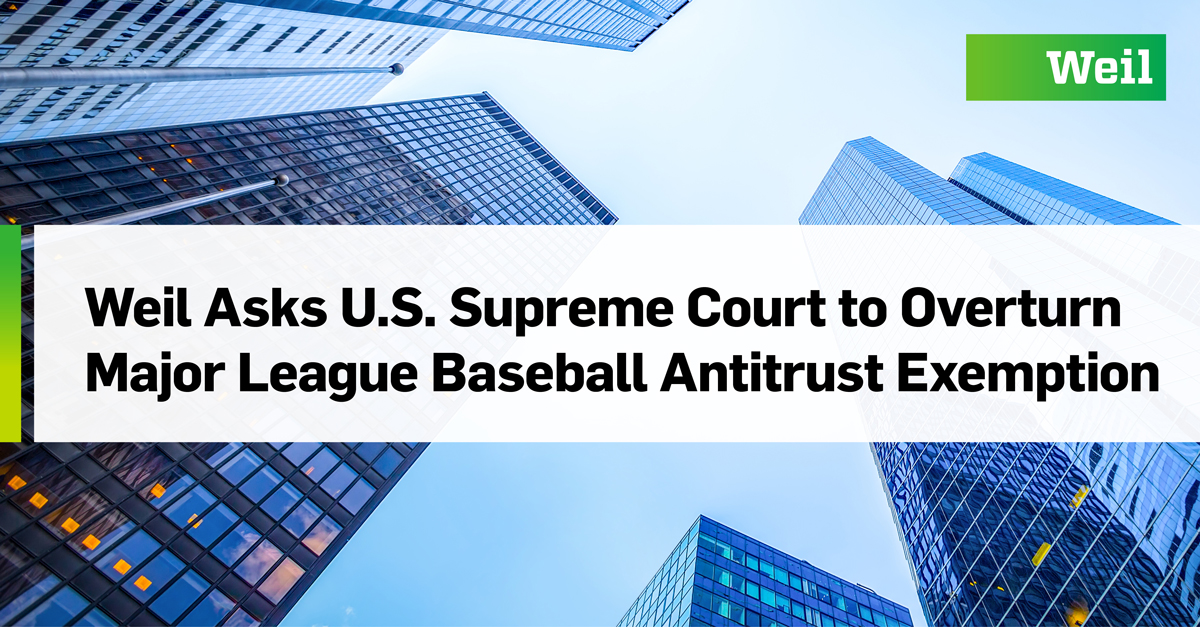On September 18, 2023, Weil filed a petition for certiorari asking the US Supreme Court to overturn a century-old common-law antitrust exemption for professional baseball.
Weil brought a federal antitrust action against Major League Baseball (MLB) on behalf of its clients, the Staten Island Yankees, Tri-City ValleyCats, Norwich Sea Unicorns and Salem-Keizer Volcanoes, alleging that the Major League Baseball also violated US antitrust laws in a challenge to the “baseball exemption” in the Supreme Court.
“There is no reasonable justification for MLB’s special legal exemption from antitrust litigation, a historic aberration not granted to other professional sports leagues. We ask the Supreme Court to hold professional baseball in the same standards like any other professional sports league,” said Greg Silbert, Co-Head of Weil’s Appeals and Strategic Counseling group and Complex Commercial Litigation practice.
Several high-profile organizations and individuals are expected to file amicus briefs in support of the petition soon.
Weil filed the initial complaint in December 2021 in the Southern District of New York. On June 15, 2022, the Department of Justice (DOJ) filed a Statement of Interest for THE complained, arguing that the baseball exemption was “aberrational” and should not be considered as broad as it had been, weighing heavily in favor of THE plaintiffs and the possibility that SCOTUS will eventually hear the case. Very rare for DOJ to intervene in a case at the District Court level. On October 26, 2022, as expected, the court granted MLB’s motion to dismiss, but only on the exemption grounds, and rejected MLB’s other defenses.
In the end, Judge Andrew Carter acknowledged that the only reason MLB’s conduct could not be challenged was because he was bound by a 100-year line of Supreme Court cases and laws that had (until now) exempted MLB from scrutiny. of antitrust. Judge Carter also cited the at the DOJ Statement of Interest usually supported THE complained and argued against MLB’s interpretation of the exemption broadly, and the court concluded that even under a narrow construction, the exemption applied.
In the name of THE appealed, Weil appealed to the Second Circuit in late 2022, supported by an amicus brief from DOJ. The appeal said the Second Circuit’s hands were tied by Supreme Court precedent, and asked the Second Circuit to immediately affirm the District Court’s opinion in order to THE plaintiffs may appeal to the Supreme Court. The Second Circuit issued its decision in June 2023 (two business days after Greg Silbert led oral argument) doing exactly as requested. the The plaintiffs are now appealing this decision to the Supreme Court.
